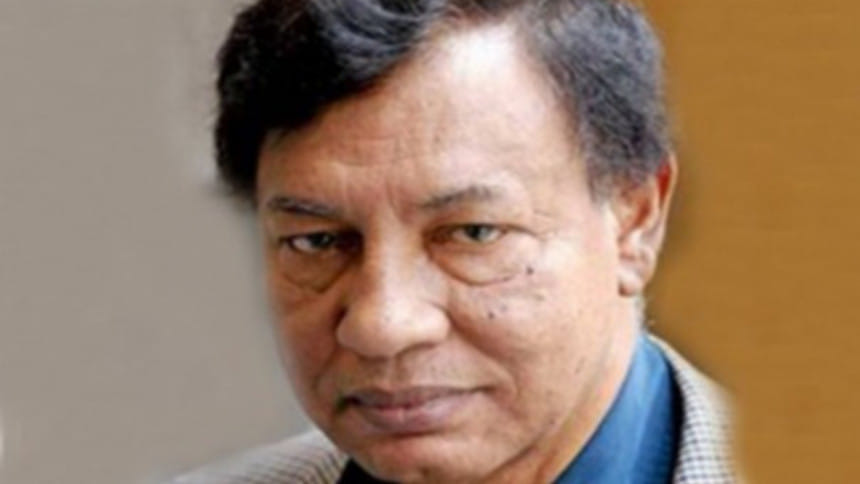Tribute to Mozammel, my warrior friend

Khandaker Mozammel Haque passed away early Thursday, August 8, 2019. Readers may know him for his contribution to the Grameen Bank. But I would like to remember him primarily as my warrior friend. Our friendship was forged in 1971, when both of us were in the United States and brought together by the birth pangs of our motherland. I had just finished my course work at the University of Chicago and he was still a student at the University of Michigan. We had both gathered, spontaneously, in Washington, DC, like many others from Bangladesh, a day after the Pakistani military crackdown in Dhaka on March 25. No one asked us to be there but we were all pulled together by an invisible force, in the same way our compatriots in Bangladesh were drawn together to fight for our country.
At our gathering in the afternoon of March 26, 1971, at the residence of Enayet Karim, the deputy ambassador of Pakistan in the US, we decided to take our message about the inevitability of Bangladesh to every possible forum in the US in order to move US public opinion against the Nixon administration's unflinching support for Pakistan.
One such gathering was the annual meeting of the American Association for Asian Studies (AAAS), which was to take place on March 28 at a hotel in the city. We all thought that the support of scholars and university professors would be important to our cause. On arrival, I found that the meeting had already started. The topic under consideration was: "The Six-Point Demand and the Future of Pakistan". At an opportune moment, I asked the chairman of the meeting for the floor and before he could react, I began speaking: it was hypocritical of scholars to discuss the future of Pakistan when it was going through its death throes as a result of the army's unleashing of an unprecedented war of terror against the population of East Pakistan. Amid loud interruptions from Pakistani participants, I ended my statement with the conclusion that Pakistan was dead and nothing could stop the creation of Bangladesh.
Upon this, a woman from Pakistan rose up and said that Pakistan was alive and would survive eternally. To this, I replied that it would be over our dead bodies. She loudly proclaimed: "So be it." Unsurprisingly, pandemonium broke out and there were calls on the chairman to throw me out of the meeting. At this moment, a young man sprang up like a Bengal tiger and made a passionate argument in my support. This was how I met Mozammel.
When I finally left the meeting, more than half the gathering joined me. I was told that the meeting could not proceed with the session after that. The incident was reported in The Wall Street Journal on April 2 with the headline: "The Eventual Separation of the Two Pakistans is Regarded as Likely." It was one of the earliest headlines in the US media predicting the demise of a united Pakistan.
Mozammel was to me one of the most indefatigable warriors for Bangladesh. He was everywhere that year, going from one meeting to another to talk about Bangladesh and why Pakistan with its two wings could not survive. He was such an able communicator! With his vast knowledge about the inner workings of the Pakistan army, he was sought after for every gathering. There were so many occasions when we went to meetings together or met in Chicago at the home of Dr FR Khan, who was the chairman of Bangladesh Defence League, and of which I was the general secretary, to discuss strategy for Bangladesh.
Mozammel was no less a Muktijoddha than those who fought on the ground to liberate Bangladesh. What Bengalis in the US did to create public opinion in favour of Bangladesh and to stop US military and financial aid to Pakistan was no less important than the physical fight for our liberation. We generated a huge number of letters to US senators and congressmen, some of whom even gave us tables in their offices and access to their stationery to send messages to those who could help our cause. Mozammel played a key role in lobbying both on Capitol Hill and all over the US and North America. When his future biographers dig up this aspect of his life, they will also discover that he was a good singer and a great cook. Without him, our life in the US in 1971 would have been much more tedious and much less memorable. With his passing, Bangladesh has lost a proud son who valiantly fought for her liberation.
Shamsul Bari is a former director of UNHCR and presently the chairman of Research Initiatives, Bangladesh (RIB).

 For all latest news, follow The Daily Star's Google News channel.
For all latest news, follow The Daily Star's Google News channel. 



Comments